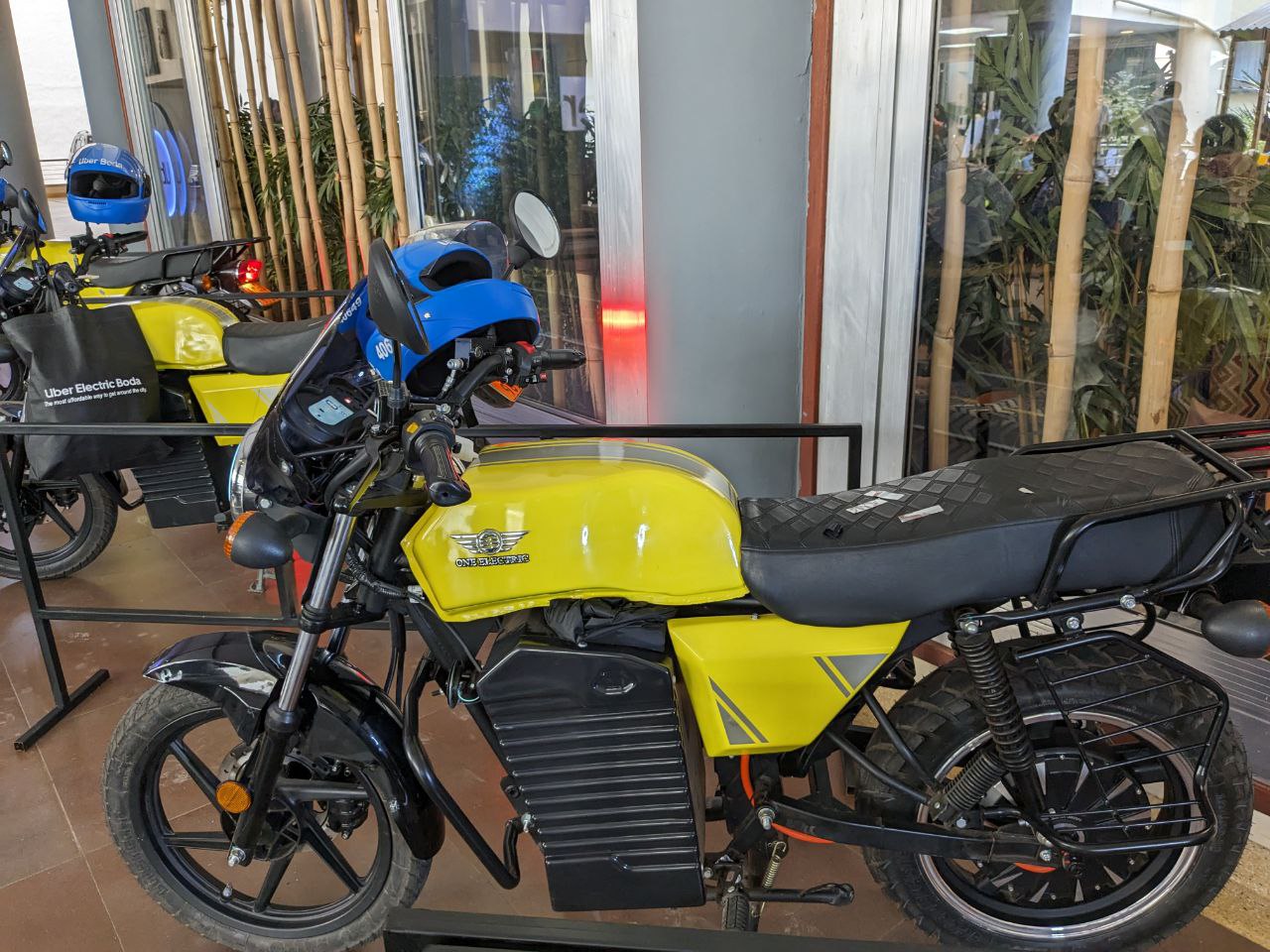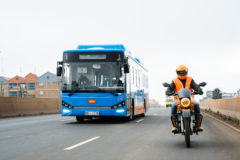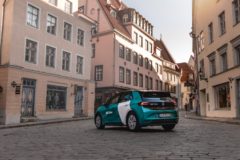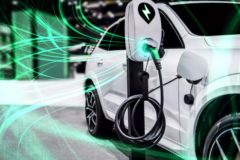Uber has launched an electric motorcycle in Kenya but is only available in Nairobi for now.
Uber has revealed an e-mobility product in the Kenyan market—an electric motorbike named One Electric. The launch is key as the worldwide automotive industry plans to transition toward electric vehicles, with countries such as the U.K. planning to phase out vehicles with internal combustion engines. This also marks Uber’s third key product announcement in the Kenyan market this year, following the rollout of an audio recording feature for safety and the integration of M-PESA into its payment system.
“Now is the time to take solid steps that enhance sustainable practices and as a business, we are committed to being part of the collective efforts to reduce the carbon footprint. Through the launch of Electric Boda on our platform, we are proud to provide an option for emissions-free mobility in Kenya. This launch also supports our global efforts to become a zero-emissions platform by 2040,” said Frans Hiemstra, director and regional general manager, Uber, Middle East and Africa.
The electric motorbikes, with an 80-kilometre range, are not owned by Uber; instead, they are under the management of Greenwheels Africa, an e-mobility company focused on electrifying motorbikes. This fleet partner will oversee all bike-related logistical matters, including maintenance and charging. Imran Manji, Uber’s head of East Africa, told TechCabal that Greenwheels currently operates only a few charging stations in Kenya, but they plan to increase them to ten before the end of the year.
However, motorcyclists won’t be responsible for charging their bikes; rather, they will exchange depleted batteries for fresh ones at Greenwheels Africa’s stations. Manji clarified that Uber electric Boda cyclists will also be charged for the batteries based on their usage. “If a rider wants to swap a battery that is at 40%, they will only pay for 60% of charge at the station,” Imran told TechCabal.
Riders won’t own the electric bikes although there are plans to sell the bikes to other Kenyans in the future. Greenwheels will lease them for Uber services through a collaborative partnership involving the e-mobility company, Uber, and the riders. The bikes will also complement the current Uber Boda service that uses fuel-powered motorbikes, now with a potential 20% price reduction. “We are doing our part to aid the transition to eco-friendly mobility products and to support national sustainability objectives. The launch of Electric Boda will provide Kenyans with one of the most affordable ways to move from one place to another, with prices 15-20% below the price of our existing product,” said Imran Manji.
For now, the bikes will be accessible in specific areas of Nairobi and are set to extend to other Kenyan cities later. Uber has not revealed plans to launch this service in other African markets.
Kenya seeks to tackle pollution following the launch of the National Electric Mobility Plan, aligned with the National Energy Efficiency and Conservation Strategy (2020-2025). This approach bypasses the need for parliamentary approval on tax exemptions for electric car imports by 2024. The plan’s core objectives involve implementing an automotive industry charter, providing eco-friendly driver education, and establishing sustainable road traffic management.
High fuel costs in Kenya have led to increased expenses for locals, businesses, and transportation, impacting economic activities and living costs. Nonetheless, the government reinstated a fuel subsidy to stabilise pump prices. This led to the cost of petrol, diesel, and kerosene remaining steady at KES 194 ($1.34), KES 179 ($1.23), and KES 169 ($1.16), respectively, in Nairobi.
According to Uber, the launch of electric motorbikes marks a potential 30-35% drop in operational expenses. The Bodaboda industry, which employs over 1.5 million youth in Kenya, contributes around KES 202 billion ($1.4 billion) to the economy each year, as per the World Bank.
Have you got your tickets to TechCabal’s Moonshot Conference? Click here to do so now!






















